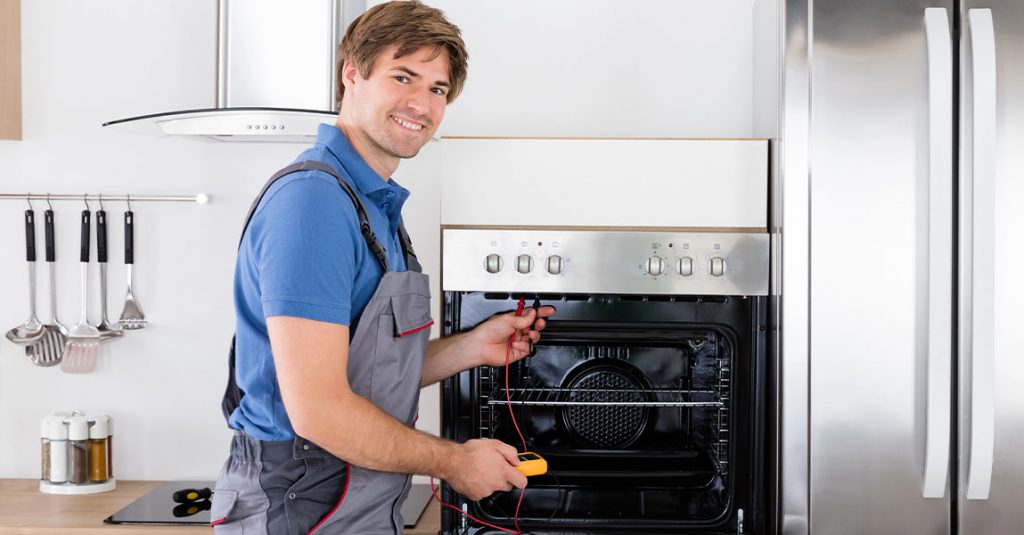A Quick Overview of the Problem
We expect our stoves to turn on instantly and heat up without hassle. However, when a gas smell lingers without any ignition, it’s a serious red flag. In other words, smelling gas but not seeing a flame isn’t just an inconvenience—it’s a hazard. Therefore, it’s critical to respond right away and understand what might be going wrong.
This guide explains how to safely approach the situation and what steps we can take. In addition, we’ll look at common causes, when to stop and call a technician, and how to prevent it from happening again.
Step One: Prioritize Immediate Safety
Firstly, if we smell gas, the most important action is to turn off the stove and avoid using any electrical appliances or igniting flames. That is to say, even flipping a light switch could create a spark. Therefore, the first move should be to open windows and ventilate the area thoroughly.
After that, we should carefully check that all burner knobs are in the off position. Meanwhile, it’s best to avoid trying to ignite the stove again. If the smell is strong and persistent, the safest route is to leave the home and contact emergency services or the gas company. In some cases, they might need to shut off the gas supply to prevent a leak from getting worse.
Step Two: Check for Common Ignition Problems
Sometimes the issue is mechanical, not a gas leak. For example, the igniter might be faulty or covered in grime. In this case, gas is released, but the burner never sparks to ignite the flame. Consequently, we end up with the smell of gas but no heat.
One common fix is to gently clean the burner and igniter area. However, we need to wait until the smell of gas has fully cleared before attempting anything. Using a toothbrush or soft cloth, we can remove food particles or grease that might block ignition. To clarify, buildup on the igniter prevents it from creating the spark needed to light the gas.
If cleaning doesn’t help and the stove still won’t ignite, then this could indicate deeper trouble. In that case, it’s time to reach out to a technician for proper stove repair in Leduc.
Step Three: Rule Out Gas Supply Blockages
In some situations, the stove may smell like gas but not ignite because of a supply issue. That is to say, the gas is reaching the burner partially but not at full pressure. As a result, we get a faint gas odor but not enough flow to sustain a flame.
We can inspect the other gas appliances in our home. For instance, if a gas dryer or water heater is also acting up, it may signal a wider problem with the gas line. Similarly, if none of the burners light while the oven also fails to heat, the supply may be restricted. This is something we should not try to fix on our own. A licensed gas technician is the only safe and legal option for supply line issues.
To get support from a certified team, it’s easy to contact appliance repair in Leduc for qualified inspection and diagnosis.
Step Four: Inspect for Signs of Wear or Damage
Over time, the parts inside a stove naturally wear out. Most importantly, the ignition switch, gas valves, and wiring can all degrade. Likewise, safety components like flame sensors can fail silently. That’s why regular inspection can help us catch the warning signs early.
If the knobs feel loose or gas continues flowing even after we turn them off, that’s a safety risk. Similarly, hearing clicking sounds without a flame means the igniter is trying but failing. In these cases, it’s smart not to keep trying. We risk allowing unburned gas to accumulate.
Instead of guessing, we recommend arranging a visit with professionals who handle stove repair in Leduc. They’ll be able to assess the ignition and gas system components with the right tools and experience.
Step Five: Ventilate and Avoid DIY Repairs
Once the situation is safe, and we’ve aired out the area, it’s tempting to look for DIY solutions online. However, we strongly recommend avoiding makeshift fixes with gas appliances. Gas leaks or ignition failures are too dangerous to take lightly. Therefore, tampering with valves or igniters without the right equipment could make things worse.
If the smell of gas returns during use, or if it’s present even when the stove is off, that points to a leak. In that case, shut off the main gas valve to the home if possible, and wait for a licensed technician to inspect the system.
We’ve helped many local households through similar situations, and scheduling professional help is often the safest decision. You can reach out for service directly through appliance repair in Leduc and book an appointment with our team.
Preventative Measures We Can Take
To reduce the chances of this happening again, regular maintenance is essential. Firstly, we should make it a habit to clean the burner ports and igniters once a month. Likewise, checking the alignment of the burner caps ensures they sit correctly for even ignition.
In addition, installing a gas detector near the stove can give us early warning if there’s ever an unnoticed leak. Above all, it provides peace of mind knowing we’ll be alerted before things become dangerous.
Another smart idea is to schedule annual inspections, even when everything seems fine. That way, we can catch wear and tear on valves or sensors early and stay ahead of safety concerns. Preventative service not only keeps things working—it helps us avoid unexpected shutdowns when we least expect them.
When to Call for Professional Repair
There are some red flags that mean we should stop using the stove entirely. For instance, if the gas smell continues even after shutting off the stove, it’s time to leave the house and call for emergency help. In other words, that situation could escalate fast.
Also, if none of the burners ignite despite cleaning, and we’ve ruled out power or breaker issues, it’s likely the ignition system has failed. At that point, a technician needs to assess the wiring and components. Likewise, if the stove smells like gas while the oven is in use, the leak may be internal.
We know how important kitchen safety is. For help diagnosing or fixing gas stove issues, reach out to our team. Use this link to contact appliance repair in Leduc and request a prompt service visit. Safety should never wait.
Extra Tip: Don’t Forget the Clock and Display
Some ignition systems are connected to the stove’s digital clock or control board. That is to say, if we’ve recently lost power or noticed a blinking display, the stove might not receive proper signals to ignite.
In some cases, simply resetting the breaker or unplugging and re-plugging the appliance solves the problem. However, if the issue returns often, there could be a fault in the control panel or circuit board. That’s where an experienced technician can help trace the source and get everything back in working order.
By staying aware of both the mechanical and electrical components, we protect both our kitchen and our peace of mind.
FAQs
Why does my gas stove make a clicking sound but not ignite?
That usually means the igniter is trying to spark but can’t complete the ignition process. Cleaning the burner ports may help, but if the issue continues, it might be due to a faulty igniter or wet components.
Is it dangerous if my stove smells like gas but doesn’t light?
Yes, unburned gas in the air is dangerous. If we smell gas without a flame, we should turn everything off, ventilate the room, and avoid any flames or sparks until the gas has cleared.
Can I fix a gas stove igniter myself?
While cleaning is safe, we don’t recommend repairing or replacing igniters without proper training. Gas systems need certified technicians for safety reasons and to ensure full functionality.
Should I replace the stove if this happens more than once?
Not necessarily. Frequent issues often point to a part failure, not a total appliance problem. A professional can replace individual parts and extend the life of the stove significantly.
What should I do if I smell gas and can’t find the source?
If we can’t identify where it’s coming from, the safest choice is to leave the area and call emergency gas services. It’s better to be cautious with any unexplained gas smell.

